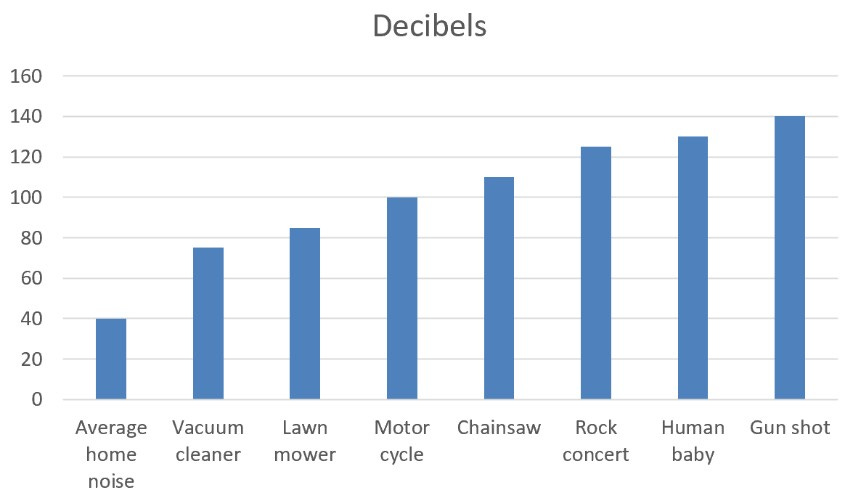Social media makes it possible to view the entire universe of batshit ideas. A generation ago, if someone thought that the government was hiding aliens at Area 51 or that Elvis faked his death, you might not hear about it. Many people have never heard of the “time travel is possible on Long Island” theory, which was popular in the ‘90s. That’s a real one, by which I mean: The theory is real. I live on Long Island, and I can confirm that time travel only exists here in the sense that you can still meet guys who think that having a car with a kick-ass bird on the hood will get them laid.
Through social media, we now know what everyone’s thinking at all times. Which is how I know that many people believe that if someone has been hurt by something — or claims to have been hurt — then that person is owed an apology at a minimum and possibly even a Cersei Lannister-style public shaming of the accused. Some see “I was hurt” not as the beginning of a conversation, not as a factor in a situation that requires review, but as a checkmate argument, essentially the verdict in a trial that’s already over.
If this argument didn’t have power, I’d ignore it. But it’s a potent force in our…God, I hate this phrase…dialogue (like we’re wearing togas in the Agora of Athens). It’s often the jumping off point for a cancellation/public shaming attempt; the New York Times staffers who got Don McNeil fired distilled the mindset when they sent a letter to their boss that said “intent is irrelevant” and “what matters is how an act makes the victims feel.” In just the past week, claims of injury caused Patton Oswalt to explain why he did a show with Dave Chappelle, Jonathan Chait wrote a column responding to alleged harm caused by a tweet, and there was a whole cancellation-circular-firing-squad thing among YouTube celebrities that you can learn about here if you’d like to wonder how in the hell humans came to be the dominant species on this planet. The "I'm hurt, therefore you're wrong" argument continues to carry weight, so I’ve decided to devote a column to why I think it’s not a workable rule.
I’d like to start here: Why do babies cry? Babies cry to tell us that they need something. It’s a trait that they — and yes, I consider babies a “they”, not a “we” — have evolved to compensate for the fact that they’re as useless as FDR’s tap shoes for the first year of their life. A baby’s cry invokes a quick response from their parents partly because we’re programmed to care for our offspring and partly because a baby’s cry is unbelievably fucking loud. Babies cry at 130 decibels; damage to the human ear starts at 85 decibels. Here’s how a baby’s wail compares to other noises, and I’m not making these numbers up:
As kids get older, they realize how desperate their parents are to get them to shut the fuck up. Thus begins the “testing limits” phase of development. In my experience, interactions with toddlers are cagey tests of resolve in which your opponent — the child — is constantly probing you for signs of weakness. It's honestly a lot like dealing with Kim Jong-un. At any rate: A toddler who knows that crying will automatically get them what they want will constantly throw tantrums, which is why parents have to learn to say “no”. The “cry for help > parental response” interaction needs to be conditional, not automatic, or else a cycle of dominance will develop that will only end when the child is turned into a blueberry in an insane candy maker’s forced labor camp.
It is, of course, also possible to go too far in the opposite direction: A parent who ignores their child’s needs is neglectful. Just as parents shouldn’t fall to pieces over every minor boo boo their child suffers, they also shouldn't respond to, say, a major farm equipment accident with an aloof “walk it off”. Kids often cry for a reason — the cry/response interaction needs to be conditional, not severed — and if your child is yelling “Help, I’ve fallen into the grain thresher!” then that, in my opinion, warrants at least an investigation.
The point is: There are different ways to respond to an injury claim. You may recognize that the extreme parenting types I’ve described map onto the poles of the political spectrum; Montessori school lefties tend to be the “my child’s feelings are the center of the galaxy” crowd, and Trumpy folks in “fuck your feelings” t-shirts are the “getting hit by a train builds character” set. The are, of course, exceptions, but the correlation is obvious.
A parent’s relationship with their child is different from the relationship adults in a society have with each other. But I’ve brought up parenting for this reason: A parent/child relationship is dictated entirely on the parent’s terms. The adult gets to choose what that relationship is like. And no sane parent chooses a relationship in which a child’s injury claim puts them automatically in the right.
A relationship in which an injury claim leads to automatic redress gives the party claiming injury too much power. In fact, it gives them all the power; in order to be in the right, they just have to invoke a magic phrase. Basically, “I was hurt” plays the same role as “It’s coming right for us!” does in that classic South Park episode:
When “I was hurt” is treated as a checkmate argument, it’s tempting to invoke it in bad faith. This week, conservative media was up in arms over an allegedly insensitive tweet by liberal columnist Jonathan Chait. Here’s the tweet:


This is very obviously a joke. Which makes the reaction to the tweet something extra-obnoxious: People pretending not to get a joke so that they can claim injury. This is, in my opinion, the most annoying flavor of claim-of-injury weaponization. And, obviously, I’m hypersensitive to this because I’m a comedian, and I’ve said billions of things that would get me exiled to the moon if they were taken seriously. But comedy becomes very difficult if “take my wife…please” gets interpreted as a sincere plea to kidnap the comedian’s spouse.
Conservative media unloaded on Chait: “Liberal New York Magazine Writer Roasted for Mocking Conservative Group’s Efforts to Help Stranded Motorists” was the headline on Fox News. RedState said “Liberal Journalist Mocks Republicans Trying to Help People Trapped in Snow on I-95”. The Federalist went with “New York Magazine Writer Mocks Conservatives Helping Stranded Drivers On Snow-Covered I-95”. The hypocrisy is obvious, since these news outlets have covered every minor occurrence of liberal snowflakery like it was the bombing of Pearl Harbor. The fact that the anti-cancel culture warrior army resorted to histrionic pearl-clutching as soon as they thought it might be to their advantage shows how cynical claims of injury can sometimes be.
But even when an injury claim is sincere, it doesn’t follow that the injured person should get to dictate a remedy. I don’t doubt that many people who claim to have been hurt by Patton Oswalt’s gig with Chappelle really did feel hurt. But there’s a competing principle here: The principle that people can maintain friendships despite disagreements. If some people feel that Chappelle’s actions negate that principle, then fair enough, they’re free to think that. But they should acknowledge that reasonable people might feel differently. If we accept that Person A’s claim that they were hurt by Person B automatically means that Person B did something wrong, then Person B has lost the ability to make moral choices.
Politics also frequently involves tradeoffs that inevitably leave some people worse off. I write a lot about climate change; I know that the policies I support will be bad for people who work in the coal industry. If I get my way, they’ll lose their jobs, and that frankly sucks; I could point out that I also support generous unemployment insurance, and that there will be new, green jobs, but that’s turd-polishing of the highest order. The bottom line is that coal is deadly, we have to move away from it, and that will be an improvement for most people, but not everyone. I’m not ignoring coal miners’ pain; I’m factoring it into my decision-making and then doing what I think is right.
Ultimately, I think the “I’m hurt, therefore you’re wrong” mindset exploits people’s nobler instincts. After all, being sensitive to others’ needs is good; when someone says “I’ve been hurt by this”, we should listen. It’s also good to think about what’s right and wrong, be introspective, and apologize when you screw up. This package of traits — I’ll call it “squishy hippie shit” — is, I think, mostly good. But it can be taken too far. Endless introspection leads to indecision. Equally valuing all opinions empowers morons. Constant apologizing makes you susceptible to bullying. A person’s squishy hippie shit needs to have limits in order to keep that person from melting into a useless puddle of slush. When someone accepts the "I'm hurt, therefore you're wrong" paradigm, I think that’s a clear sign that they don’t have their squishy hippie shit under control.
I wonder if I really needed to write this column. I think that most people intuitively understand why “I’m hurt, therefore you’re wrong” doesn’t work. It’s also true that launching a crusade to debunk every dumb idea I read on Twitter would not be a good use of my time; trying to remove the stupid from Twitter seems a bit like trying to remove the shit from a cowpie.
But the “I’m hurt, therefore you’re wrong” mindset clearly exists, and it doesn’t appear to be going away. Will we become a society organized according to who has the most compelling injury claim? Maybe. Though we’ll probably get wiped out by climate change or robots before that, so there’s hope.
To me, validating someone’s injury claim means hearing them and taking them seriously, not automatically giving them whatever they want. The idea that an injury claim is ipso facto proof of someone else’s wrongdoing strikes me as obviously false. But, hey: So does the belief that there’s a time warp just outside of Montauk. And through the magic of Twitter, I’ve learned that both ideas still have believers.
***POLL FOR THURSDAY***
I'd like the next column to be...
1. A review of Gutfeld!, the top-rated political comedy show on cable. [VOTE FOR THIS]
2. An explainer of the Russian buildup on the Ukrainian border. [VOTE FOR THIS]








I’ve been stranded in the snow on that exact stretch of I-95 (years ago) and it was legitimately traumatic. Afterwards, I was shaking for days. But I did not know or care what people were tweeting about it.
I agree that it was a douchey tweet, but also totally inconsequential. There’s no need to go to the fainting couch every time someone expresses a dumb thought. People need to grow up.
Jeff, you have become one of the substackers that I most look forward to reading when I see your name in my inbox. Your articles always come through with humor, wit, and intellect.
However, I must disagree with you yet again! Not on the substance of your article, but on the example you hinged the substance on.
That Jonathan Chait tweet did *not* work as humor, because the tweet he was lampooning wasn't a tweet bellyaching over something obviously hypocritical, or feigning being wronged.
It was, as far as I can assess, a good-faith tweet trying to help people who were seriously in need at that very moment. For those stranded on a highway in the dead of winter with no supplies, it could seriously be a dangerous situation. Any coordination I'm sure was appreciated, even from the Reagan Battalion.
I think Chait's tweet was in poor taste considering the nature of the tweet and the situation the tweet was addressing. To me, this is like a conservative making fun of a tweet from a progressive organization trying to provide immediate resources for those under attack at the Capitol Building on Jan 6. No matter what lampooning was happening, for whatever reason, it would not be considered appropriate.
Cheers!